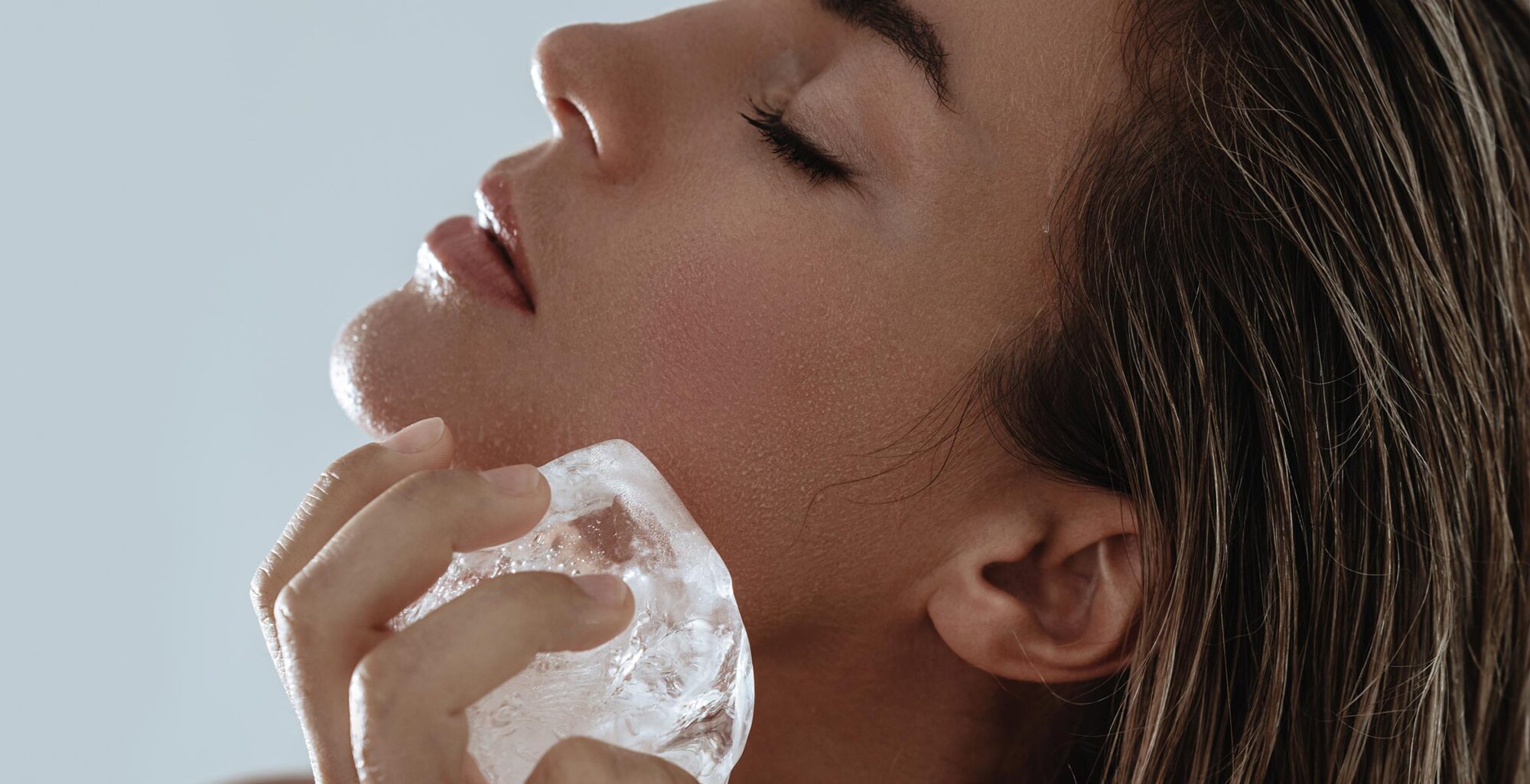Pollution, SPF, and Your Skin’s Ecosystem: The Essential Microbiome Skin Care Tips to Keep Your Skin Balanced

Sunscreen is the cornerstone of any skincare routine, protecting the skin from harmful UV radiation and preventing premature ageing. However, a lesser-discussed aspect of daily SPF use is its impact on the skin’s microbiome—the delicate ecosystem of beneficial bacteria, fungi, and other microorganisms that help maintain skin health.
Understanding how to balance sun protection with microbiome skin care is crucial, especially for those navigating urban environments filled with pollution and environmental stressors. Let’s explore the importance of a balanced skin microbiome, how SPF affects it, and the best way to protect both your skin and its natural defences.
The Importance of a Balanced Skin Microbiome
Your skin is home to billions of microbes that work to keep your barrier function strong, prevent moisture loss, and ward off harmful pathogens. A balanced microbiome helps maintain skin health and is a cornerstone of effective microbiome skin care:
– Reduce sensitivity, redness, and irritation.
– Protect against environmental stressors, including pollution and UV radiation.
– Maintain hydration by reinforcing the skin barrier.
– Prevent breakouts by controlling the growth of acne-causing bacteria.
However, when the microbiome is disrupted, the skin becomes more vulnerable to dryness, inflammation, and premature ageing. This is why microbiome skin care should be a key consideration when choosing skincare products, including SPF.

Factors That Affect the Skin Microbiome
Several external factors can throw the microbiome off balance, such as:
– Harsh skincare products – Overuse of exfoliants, alcohol-based toners, and aggressive cleansers can strip away beneficial bacteria.
– Air pollution – Urban dwellers face a unique challenge. Airborne pollutants, including particulate matter (PM2.5), heavy metals, and free radicals, cling to the skin, generating oxidative stress. This damages skin cells accelerates ageing and disrupts the microbiome by weakening beneficial bacteria that serve as a protective shield.
– Stress and diet – Internal factors, including high-stress levels and poor diet, can negatively affect the microbiome’s composition.
– Daily SPF use – While essential for sun protection, some sunscreens contain ingredients that may disrupt the skin’s microbial ecosystem.
How Does Daily SPF Use Impact the Skin Microbiome?
Sunscreen is designed to sit on the skin for hours at a time, which can influence the microbiome in several ways:
– Chemical UV filters – Some chemical filters, such as oxybenzone and ethylhexyl methoxycinnamate, have been shown to disrupt microbial diversity.
– Occlusive textures – Some sunscreens create a thick barrier that prevents the microbiome from interacting with the external environment, potentially leading to imbalances.
– Frequent reapplication – While in some cases necessary, layering sunscreen repeatedly without cleansing can trap sweat, oil, and pollutants, altering the microbiome.
– Preservatives and stabilisers – Many sunscreens contain ingredients designed to enhance stability but may impact microbial balance.
Another crucial factor is skin pH. A healthy microbiome thrives in a slightly acidic environment (around pH 5). However, some sunscreens—especially those with high SPF—can raise the skin’s pH, creating an environment where pathogenic bacteria are more likely to thrive while beneficial bacteria struggle.
Despite these challenges, not all sunscreens are bad for your microbiome. The key is to choose microbiome-friendly sun protection that respects the skin’s natural pH and ecosystem is essential for long-term skin health.

Choosing the Right SPF for City Life & Pollution Protection
For those living in urban environments, SPF should do more than just block UV rays – Opt for microbiome skin care-focused formulas that support your skin’s natural defences against pollution. Here’s what to look for in an SPF if you commute daily in a town or city:
– Mineral filters – Opt for non-nano zinc oxide and titanium dioxide, which provide broad-spectrum protection without disrupting the microbiome.
– Antioxidants – Look for sunscreens enriched with antioxidants like Buddleja Davidii and Artemisia Umbelliformis, which are rich in polyphenols and flavonoids, to help neutralise pollution-induced free radicals.
– Lightweight, breathable formulas – Avoid heavy, pore-clogging sunscreens that may disturb the microbial balance.
– Fragrance-free and low-irritation formulations – Synthetic fragrances and harsh preservatives can contribute to microbiome disruption.
– Hydrating ingredients – Skincare that includes Saccharide Isomerate, for example, helps maintain microbiome health by preventing dehydration.
The Role of Microbiome-Friendly Sun Protection
To ensure your sun protection supports rather than disrupts your skin’s microbiome, look for microbiome-friendly formulations. These products:
– Are formulated with stable, skin-friendly UV filters.
– Contain prebiotics and postbiotics to support beneficial bacteria.
– Maintain a skin-friendly pH, typically around 5.
– Include natural ingredients known to preserve microbiome integrity.
(Our Artemisia Power Protection Moisturiser SPF50+ is a perfect example of a microbiome-conscious sunscreen.)

How to Incorporate Microbiome Skin Care & SPF Into Your Routine
Incorporating microbiome skin care into your daily routine, alongside SPF, ensures you’re protecting your skin from both UV damage and environmental stressors. Here are some simple steps to follow:
- Start with a microbiome-friendly cleanser – Use a gentle, sulphate-free cleanser to remove SPF at the end of the day without stripping your skin.
- Apply an antioxidant-rich serum – We’re fans of serums containing Saccharide Isomerate and Epilobium Extract as both these ingredients help fortify the microbiome before SPF application.
- Apply your favourite microbiome-friendly sunscreen.
- Support your skin barrier overnight – Use a nourishing, microbiome-boosting moisturiser, such as Essential Bio-Technological Moisturiser or Nutritive Repair Emulsion, to repair and hydrate.
Myths & Mistakes in Microbiome Skin Care & SPF Use
Despite the growing awareness of microbiome skin care, misconceptions still abound. Here are some of the most common SPF-related myths:
– “Natural sunscreens are always microbiome-friendly.” While mineral-based sunscreens (zinc oxide, titanium dioxide) are often gentler on the skin, their formulation matters. Some still contain preservatives or emulsifiers that may disrupt the microbiome. The key is to look for well-formulated, microbiome-friendly options.
– “Chemical sunscreens are bad for the microbiome.” Not necessarily. Some chemical UV filters have been found to alter microbial diversity, but others can be well-tolerated depending on the overall formulation. The best approach is to choose a sunscreen free from unnecessary irritants and one that maintains skin pH balance, especially if you have sensitive skin.
– “Sunscreen suffices for urban skin protection.” While SPF is critical, it should be paired with antioxidant protection to shield against pollution and oxidative stress.
– “Non-comedogenic sunscreen doesn’t affect the microbiome.” While many sunscreens labelled as “non-comedogenic” are designed to prevent pore blockages, not all of them are formulated to protect the skin’s microbiome. Some ingredients, even if non-comedogenic, can still disrupt the balance of beneficial bacteria on the skin. It’s crucial to choose sunscreens that not only shield your skin from sun damage but also maintain the health of its natural microbial ecosystem.
The Takeaway: Healthy Skin Needs Both SPF & Microbiome Care
Protecting your skin from the sun shouldn’t come at the cost of your microbiome health. By choosing microbiome-friendly sun protection, you can enjoy the best of both worlds—strong UV defence and a resilient skin barrier.
Whether you live in a city filled with pollution or simply want to maintain a healthy complexion year-round, prioritising microbiome skin care in your sun protection routine is essential.











